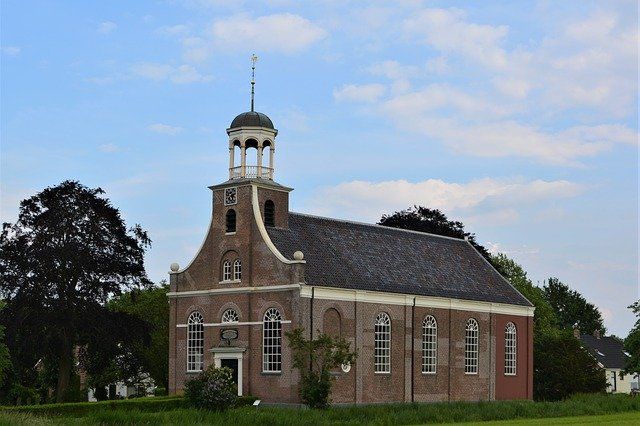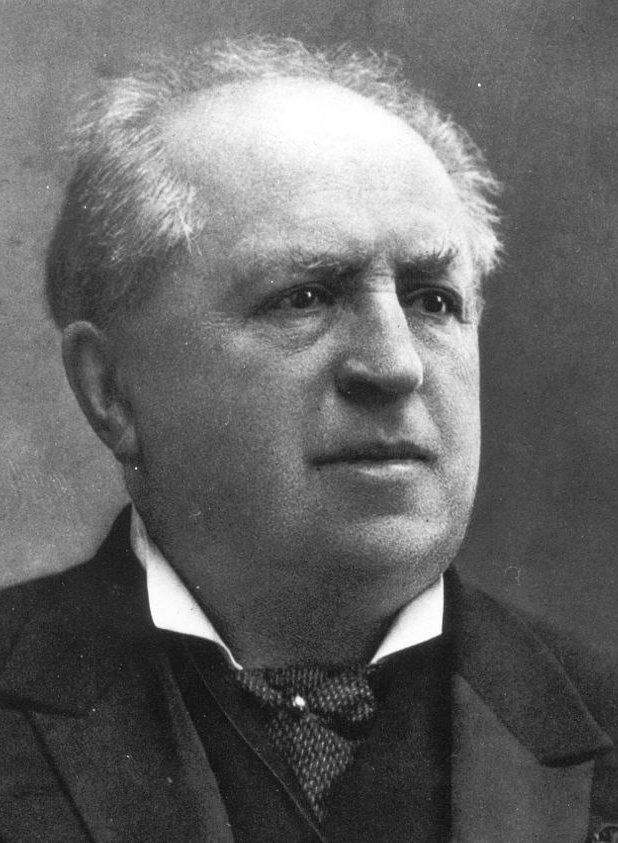
A few years ago I was privileged to visit the Reformed Churches of the Netherlands (Liberated). After hearing the history of the Reformed Churches in Holland, I said that it was a history of division. An elder agreed saying, ‘in the Netherlands we love a fight’! There is truth and error in his reply.
From the time of the Synod of Dordt (1618) the Netherlands Reformed Church (NRC) was patterned on Reformation teaching. But in 1816 King William I gave the State a new role over the Church.
As well as this Erastianism, another threat arose. The church in the northern town of Groningen became a centre of theological liberalism, teaching ‘a Unitarian concept of God, a semi-Pelagian doctrine of sin, and an Arian Christology’.
Hendrik de Cock
In 1829 Hendrik de Cock became minister in Ulrum, near Groningen. He was not evangelical but his congregation was. One of them gave him the Canons of Dordt to read. This, plus his own discovery of Calvin’s Institutes, led to a great change in his preaching.
Liberal ministers began to criticise de Cock. In reply he wrote a pamphlet defending the truth. This sparked off a debate and he was suspended as minister.

He refused to ‘recant’ and in December 1834 seceded with his congregation. Other churches left the NRC to join de Cock in forming the Christian Reformed Churches in the Netherlands (CRCN).
The secessionists suffered terribly for their convictions. Their meetings were often broken up by mob violence, or they were fined or imprisoned. Initially, their preachers trained in Switzerland under Cesar Malan and Merle d’Aubigne.
Today the CRCN has 185 churches. The church still emphasises regeneration, personal faith and piety, though in other respects it leaves much to be desired.
Abraham Kuyper
The famous Dutch Reformed theologian Abraham Kuyper began life in the NRC. Like de Cock 50 years previously, he viewed liberalism as the deadly enemy of true Christianity.
At first he and his followers tried to reform the NRC from within. They conducted their meetings separately in embryonic ‘churches’ called Doleantie (Latin: ‘sorrow’). The prospect of division from the NRC was not a matter for rejoicing but sorrow and pain.
The growth of the Doleantie ‘churches’ made conflict with the parent body inevitable. In 1886 members of the Amsterdam consistory were suspended from office for barring from the Communion table young people who held liberal doctrines.
Kuyper and the Doleantie Christians seceded, uniting with some of the CRCN to form the Reformed Churches in the Netherlands (RCN).
Klaas Schilder
By the 1920s the RCN had also become infected with liberal theology. At a 1926 synod J. G. Geelkerken denied the historicity of the opening chapters of Genesis. Tensions mounted over the doctrines of common grace, covenant and the church.
Evangelicals within the RCN found a champion in Klass Schilder. Schilder criticised man-centred thinking and commended God-centred preaching.

During the mid-1930s the RCN’s internal tensions were exacerbated by acute differences over the church’s relationship to Nazism. Abraham Kuyper was opposed to Nazism, while influential ministers like his son H. H. Kuyper and Valentine Hepp were open to Hitler’s ideas.
Schilder was briefly imprisoned during 1940 and had to ‘go underground’ from 1942 to 1944.
Liberated Church
Schilder and other ministers were deposed from office in 1944 and seceded, signing the Act of Liberation. Thus the Reformed Churches in the Netherlands (Liberated) was born.
Since then the RCN has become even more liberal in doctrine and morality. Homosexuality is tolerated and positive views on abortion and euthanasia go unchecked.
By contrast, the RCN (Liberated) has held firmly to its doctrinal standards, the Heidelberg Catechism, Canons of Dordt and Belgic Confession.
Today the Liberated Church is well organised at every level. It promotes missionary work, runs its own newspaper and political party, trains men for the ministry, and has schools and teacher training colleges. Recently it has given practical support to Reformed churches in the UK.
Lessons
Several lessons can be drawn from this brief survey:
We need to be vigilant. In every age the central truths of the gospel come under attack. Are we alert to any currents of liberal or pagan thought undermining our churches?
We need to be informed. We cannot discern error if we do not know the truth. Dutch Evangelicals have studied Scripture closely. Are we concerned to be biblical in church life and doctrine, and not blown about by every wind of doctrine?
We need to contend for the faith. De Cock, Kuyper and Schilder fought the fight of faith at great personal cost. It is not easy or pleasant to disagree with professed Christians, but it may be essential in order to cleave to the truth.
We need to unite. A paradoxical lesson from a history of division! Yet the best Dutch Reformed churches unite with all those that hold to that precious ‘faith once delivered to the saints’.
In our own day we need to recall the scriptural imperative to express the unity of the body of Christ in a visible way.








